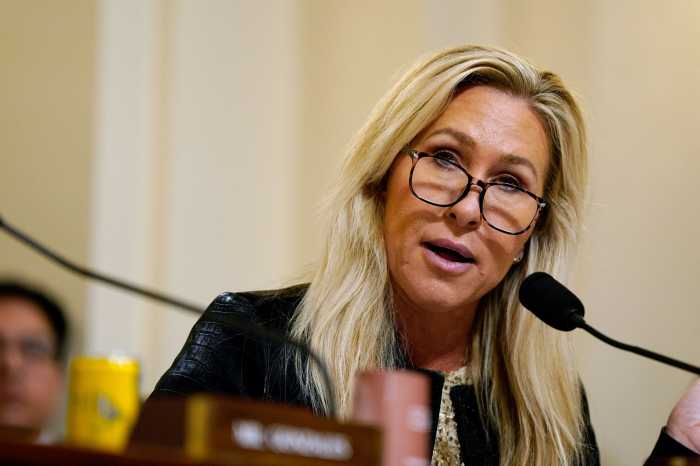State audits of HIV clients, ordered by Bush, found unconstitutional
A federal judge ruled on January 11 that state auditors were violating the constitutional right of privacy when they cut off funding under the federal Housing Opportunities for People with AIDS Act (HOPWA) because the Idaho AIDS Foundation (IAF) refused to provide the auditors with “unfettered access” to client medical files. District Judge B. Lynn Winmill’s decision grants summary judgment to IAF on its constitutional and breach of contract claims.
IAF’s contract with the Idaho Housing & Financing Association (IHFA), the state agency that administers HOPWA funding in the state, required IAF to provide reasonable access to state auditors. IAF did so until IHFA, under pressure from the new Bush administration officials in the federal Department of Housing and Urban Development Department (HUD), demanded in September 2001 that the state agency inspect the client files of HOPWA-funded community-based AIDS organizations in a search for fraud.
HUD officials asserted that the only way to find out whether undeserving people were receiving federal money would be for the state agency to peruse client files, and that those files could not be “redacted” to remove information that would identify individual clients.
IAF immediately protested against this, pointing out that the files contained sensitive information in doctors’ diagnostic and treatment notes, including information about the sexual activity of individual clients. The organization argued that it should be sufficient to provide access to existing client files after individual identifying information––such as names, addresses, and social security numbers––was removed. It also said it could come up with a consent form for clients to sign if they were willing to have their files made available in the future.
The state agency, under threat from HUD of losing Idaho’s HOPWA money, declined IAF’s proposal.
As a result of standing up for the privacy rights of its clients, IAF was denied renewal of its contract with the state agency, which even refused to pay outstanding bills for services that had been rendered to clients before this dispute arose.
IAF’s lawsuit, in addition to claiming a constitutional privacy violation and breach of contract, also alleged discrimination under the federal Fair Housing Act and the Americans With Disabilities Act. IAF and the state both filed motions for summary judgment on all claims.
Judge Winmill found that the individual clients have a compelling privacy interest in the contents of their medical files, and particularly noted that IHFA does not have a strong internal confidentiality policy to ensure that this kind of information, if obtained by the agency, would not get out to the detriment of those clients.
The judge also determined that IHFA was asking for access to more information than was strictly necessary to conduct an adequate audit, and that its need for the information in the form it requested did not outweigh the privacy interests of IAF’s clients. Winmill found a clear breach of contract arising from the state’s refusal to pay for services already rendered, as well as the refusal to pay through the duration of the contract for IAF’s continuing services to clients. Further court proceedings will be needed to determine the extent of IAF’s money damages.
However, Winmill found scant evidence of intentional discrimination on the basis of the facts IAF submitted. He did, however find that IAF had possible claims for retaliation and “disparate impact” discrimination. Those claims can be adjudicated as the case continues, but were not yet ripe for a summary judgment grant.
As a result, the state agency succeeded in getting some of the legal claims tossed out at this stage in the case.
The most significant aspect of Winmill’s ruling was the finding that HUD should be added to the case as a co-defendant with IHFA, since it was now clear that IHFA did not act on its own, but was prompted by the Bush administration’s attempt to crack down on community-based AIDS organizations. Those following this issue since the first days of the Bush administration, as reported in Gay City News, will remember that several conservative members of Congress, claiming that there was widespread fraud in federal AIDS benefit programs, pressed for a crackdown, although investigations did not really turn up much. The main effect of the crackdown has been the harassment of many gay-identified social service agencies with intrusive, time-consuming audits.
Now the worm has turned and the Bush administration’s tactics are condemned as unconstitutional. Of course, the government can, and likely will, appeal.
gaycitynews.com



































